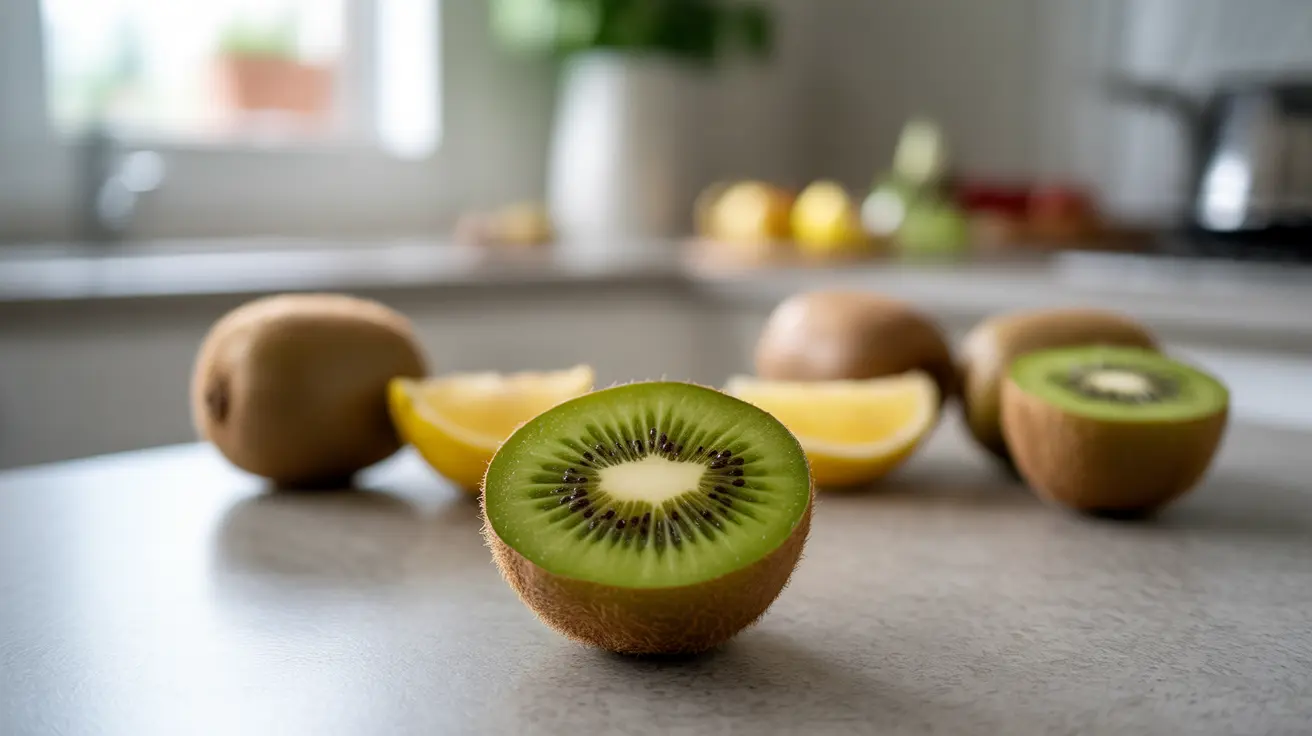Kiwi fruit, with its vibrant green flesh and unique tangy-sweet flavor, is more than just a delicious tropical treat. This nutrient-packed powerhouse offers an impressive array of health benefits that make it an excellent addition to your daily diet. From supporting digestive health to boosting immune function, kiwis have earned their place among nature's most beneficial fruits.
Let's explore the remarkable health advantages of kiwi fruit and discover why incorporating this fuzzy little fruit into your diet could be one of the smartest decisions for your overall wellness.
Nutritional Profile of Kiwi Fruit
Kiwis are exceptionally rich in essential nutrients while being relatively low in calories. A single medium-sized kiwi contains:
- Vitamin C (more than an orange)
- Vitamin K
- Vitamin E
- Folate
- Potassium
- Fiber
- Antioxidants
Key Health Benefits of Kiwi
Digestive Health Support
Kiwi fruit contains natural enzymes and fiber that aid digestion. The unique combination of soluble and insoluble fiber helps maintain regular bowel movements and supports a healthy gut microbiome. The enzyme actinidin, found specifically in kiwis, helps break down protein and can ease digestive discomfort.
Immune System Boost
The high vitamin C content in kiwis makes them excellent immune system supporters. One medium kiwi provides more than your daily requirement of vitamin C, helping your body fight off infections and maintain overall health.
Heart Health Benefits
Regular consumption of kiwi fruit may help maintain healthy blood pressure levels and reduce the risk of blood clots. The potassium content helps regulate blood pressure, while the fruit's unique combination of antioxidants supports overall cardiovascular health.
How to Include Kiwi in Your Diet
There are several delicious ways to incorporate kiwi into your daily meals:
- Add sliced kiwi to breakfast cereals or yogurt
- Blend into smoothies
- Include in fruit salads
- Eat as a standalone snack
- Use as a natural meat tenderizer
Frequently Asked Questions
What are the main health benefits of eating kiwi fruit every day?
Daily kiwi consumption can boost immune function through high vitamin C content, improve digestion with natural enzymes and fiber, support heart health, and provide antioxidant protection. Regular intake may also help with sleep quality and maintain healthy skin.
Can eating kiwi help with constipation or digestive issues?
Yes, kiwi can effectively help with constipation and digestive issues. Its combination of fiber and natural enzymes helps promote regular bowel movements and aids in protein digestion. Studies show that eating two kiwis daily can improve digestive comfort and regularity.
Which nutrients in kiwi make it good for heart health and lowering cholesterol?
Kiwi's heart health benefits come from its potassium content, which helps regulate blood pressure, and its high levels of antioxidants and vitamin K. The fruit also contains compounds that may help reduce blood clotting and lower cholesterol levels naturally.
Are there any risks or side effects of eating kiwi, such as allergies or reactions with medications?
While kiwi is safe for most people, some may experience allergic reactions, ranging from mild oral allergy syndrome to more severe responses. People taking blood-thinning medications should consult their healthcare provider due to kiwi's vitamin K content. Those with latex allergies may also be sensitive to kiwi.
Should I eat the skin of a kiwi, and does it offer any additional nutritional benefits?
The skin of kiwi is edible and contains additional fiber, antioxidants, and vitamin C. While some people enjoy eating the fuzzy skin, others prefer to peel it. If you choose to eat the skin, make sure to wash the fruit thoroughly first. The skin's nutrients can boost the fruit's already impressive nutritional profile.




